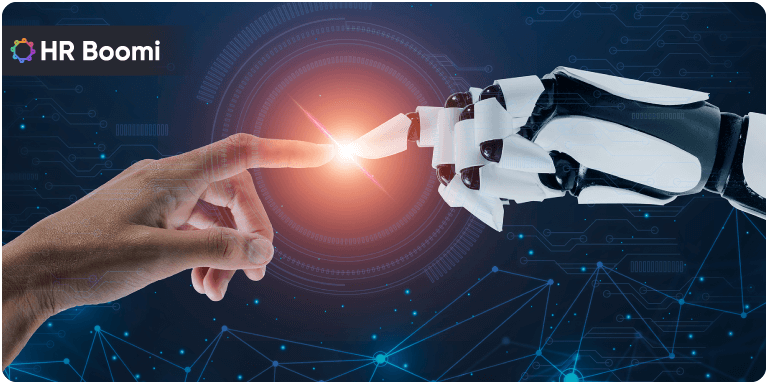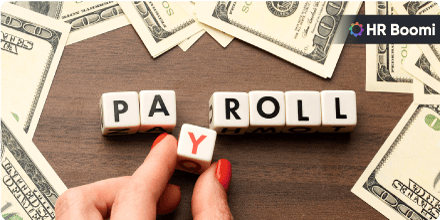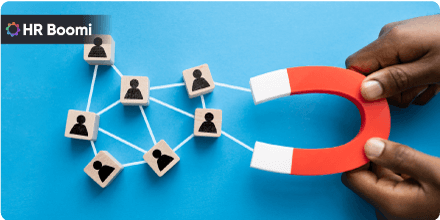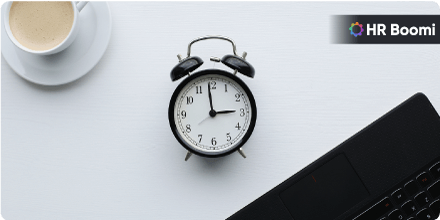
Table of Contents
A profound revolution is underway in the swiftly evolving landscape of human resources. The age-vintage practices of conventional HR management are being challenged and converted by the combination of synthetic intelligence (AI). This dynamic shift prompts an integral inquiry: “HR Revolution: human beings vs. AI – Who Prevails in Reality?” The complicated interaction between human HR specialists and AI-pushed solutions has raised questions about the destiny of the workforce, the efficiency of brain control, and the overall well-being of workers.
To uncover the actual effect, we investigate the statistics and case studies that light up how this clash between human instinct and gadget precision is shaping the current global HR. In this exploration, we’re going to shed light on the key variations and, in some instances, the sudden similarities between those 2 geographical regions, in the long run unraveling the path that leads us into the destiny of HR.
Consistent with hbr.org, AI must increase human Genius rather than replace it. For greater info, go to: hbr.org
The Evolution of HR
Human resources, frequently appearing as the spine of any corporation, has traditionally been a domain where human know-how and instinct have reigned ideally suited. HR specialists had been answerable for duties starting from talent acquisition and worker onboarding to overall performance control and struggle decisions. While human judgment is invaluable in making nuanced decisions and grasping the complex interplay of emotions within the place of business, it’s also subject to biases, boundaries, and time constraints.
With the emergence of AI, HR functions can be augmented by using gadget intelligence. AI can sift through substantial quantities of data, perform repetitive tasks tirelessly, and offer precious insights that would be almost impossible for a human to perform in a reasonable amount of time. This shift is obvious in diverse facets of HR, and to recognize its implications, let’s explore some key areas.
Recruitment and Talent Acquisition
The process of hiring pinnacle intelligence is a central characteristic of HR. AI-driven structures are being used to source, screen, and shortlist applicants. These systems can examine resumes, scour the net for capacity applicants, and even conduct initial video interviews. They can do that quickly and continuously, besides the influence of personal biases.
Stat: In step with a 2022 survey by Deloitte, seventy-one percent of organizations have followed AI in their HR features, with talent acquisition being one of the most typically computerized areas.
Employee Onboarding
The onboarding process is crucial for introducing new hires to the agency. AI can assist by automating paperwork, presenting imperative statistics, and answering commonplace questions, permitting HR employees to focus on the extra non-public factors of the onboarding process.
Stat: An examination with the aid of Accenture found that corporations that use AI in onboarding can grow productivity by 30% and decrease employee turnover by 20 %.
Performance Management
AI can examine employee performance records, presenting insights into productiveness, engagement, and potential regions for development. These insights can assist HR specialists in providing greater centered education and support to personnel.
Stat: A Harvard commercial enterprise review found that AI-pushed performance control structures have helped corporations enhance employee productivity by 24%.
Employee Engagement and Satisfaction
AI can help in gauging worker sentiment through surveys and sentiment analysis equipment. This fact can help craft techniques to improve the place of job delight and deal with any issues proactively.
Stat: The Harvard commercial enterprise overview reported that 79% of HR leaders use AI to measure and improve employee
Conflict Resolution and Compliance
AI can help identify potential conflicts and ensure that HR practices observe all criminal regulations. It also helps create a fair and numerous place of job by figuring out biases and regions in which upgrades are wished.
Stat: The arena financial discussion board noted that AI can help companies reduce gender pay gaps and improve variety and inclusion.
AI in HR: The Human Touch
At the same time as AI brings undeniable benefits to HR, it is no longer barring its demanding situations. One of the key worries is the ability lack of human contact. HR has long been associated with empathy, perception, and private connection. Many personnel nevertheless decide on human interaction, especially in touchy topics like grievances and war resolution.
Furthermore, AI structures are solely as true as the records they’re trained on. If the records are biased, the AI machine can perpetuate the biases, leading to potential discrimination in hiring and promotions.
Forward-thinking companies are adopting a “human within the loop” method to deal with these worries. This means that AI augments HR tactics but does not update the human detail. For instance, at the same time, AI can conduct preliminary candidate interviews; the very last selection and provide stage is often nevertheless controlled by HR specialists. This aggregate leverages AI’s and people’s strengths, ensuring efficiency and empathy coexist.
AI-driven structures can also assist HR experts in making extra knowledgeable choices. For instance, they could provide data-pushed insights to help discover employees at risk of leaving the organization, allowing HR to take proactive measures to improve retention.
The Future of HR: Collaboration
The winning fashion in HR is a shift from the “AI vs. human beings” debate to a “humans and AI” collaboration. Companies are increasingly spotting that the maximum success HR strategies combine human insight and AI-pushed facts analytics.
Training and Upskilling
As AI becomes more integrated into HR, there’s a developing want to effectively instruct HR experts in using AI gear. This consists of perceiving the information, decoding AI-generated insights, and making information-knowledgeable selections.
Stat: A survey by PwC found that 69% of HR professionals believe that AI and automation require new skills.
Ethical and Fair AI
To ensure AI doesn’t perpetuate biases and discrimination, HR experts want to be actively involved in developing and overseeing AI systems. This consists of providing tips for moral AI use and continuously monitoring AI systems for equity and fairness.
Stat: Consistent with Gartner, eighty percent of AI initiatives will deliver erroneous outcomes due to bias with the aid of 2023 if not actively addressed.
Personalized Employee Experience
HR experts can use AI to create an extra customized worker experience. Through analyzing facts on individual selections, career desires, and painting patterns, HR can tailor improvement plans and blessing programs to healthy individual wishes.
Stat: A Deloitte survey discovered that 65% of HR leaders consider AI will permit them to provide a greater personalized worker enjoy.
Strategic HR
With AI dealing with many ordinary HR duties, HR experts can be aware of extra strategic activities. This consists of growing intelligence acquisition techniques, succession planning, and aligning HR with broader organizational goals.
Stat: A document by McKinsey & corporation observed that HR experts who use AI are 2.7 instances much more likely to spend their time on strategic projects.
Conclusion
The HR revolution is properly underway, and the balance between humans and AI is shifting. While AI has been established to be an effective device in automating and augmenting HR approaches, the human touch remains crucial for empathetic choice-making and complex problem-fixing. The future of HR lies in a collaborative approach that leverages the strengths of both human beings and AI.
As companies navigate this evolution, they need to spend money on AI training for HR experts, put in force ethical AI recommendations, and raise awareness of handing over an extra personalized and strategic HR experience. The data and case studies we’ve explored make one factor clear: AI isn’t always replacing people in HR but instead enhancing our competencies, ushering in a new era of HR that mixes the first-rate of both worlds.
The HR revolution isn’t always a combat between people and AI; it’s a partnership to outline the destiny of work and the worker experience.
Recent Posts
-

In-house vs. Outsourced Payroll: Pros and Cons
-

Mastering Talent Retention: A Corporate Challenge
-

What is employer branding and how to apply it in your company?
-

The Significance of Employee Communication Within
-

What is time management and why is it important?
-

Net salary: what is it and how is it calculated?
-

Enhancing Employee Experience: Strategies for Excellence
-

10 Best Gifts to Boost Sales Channels
